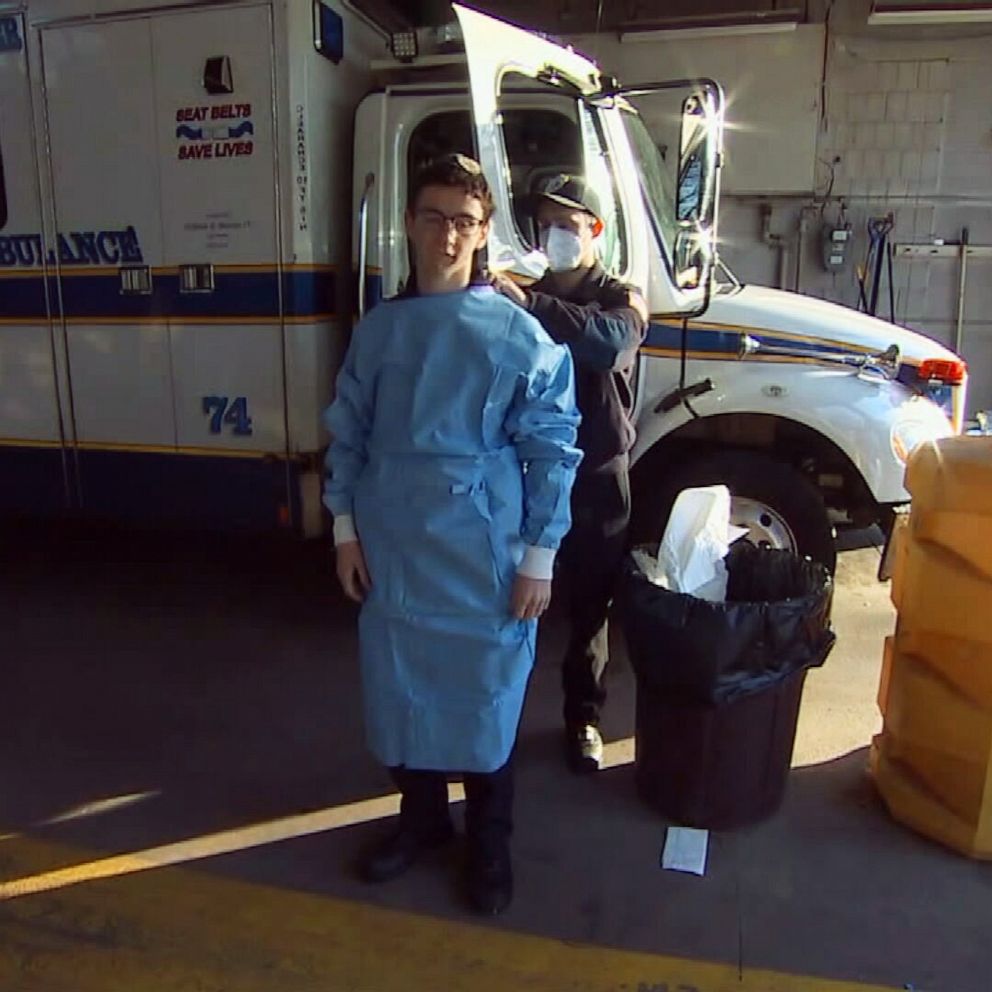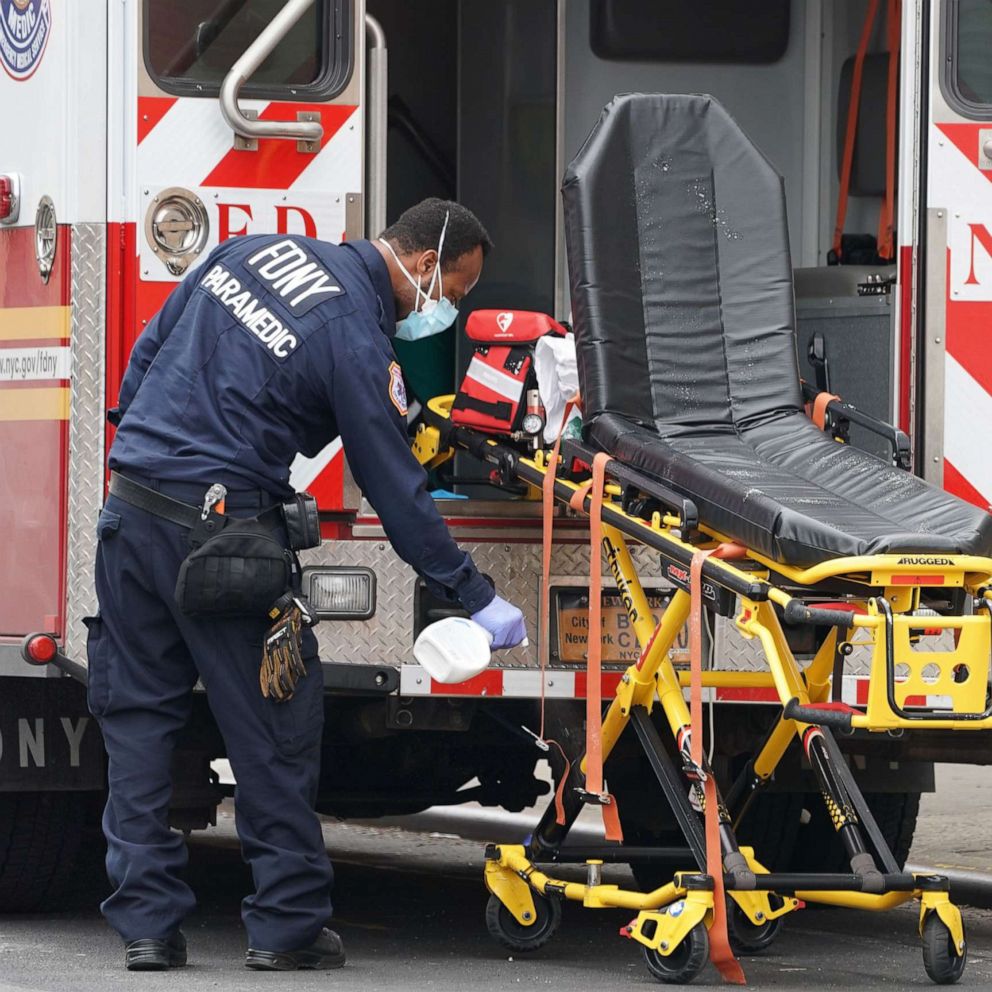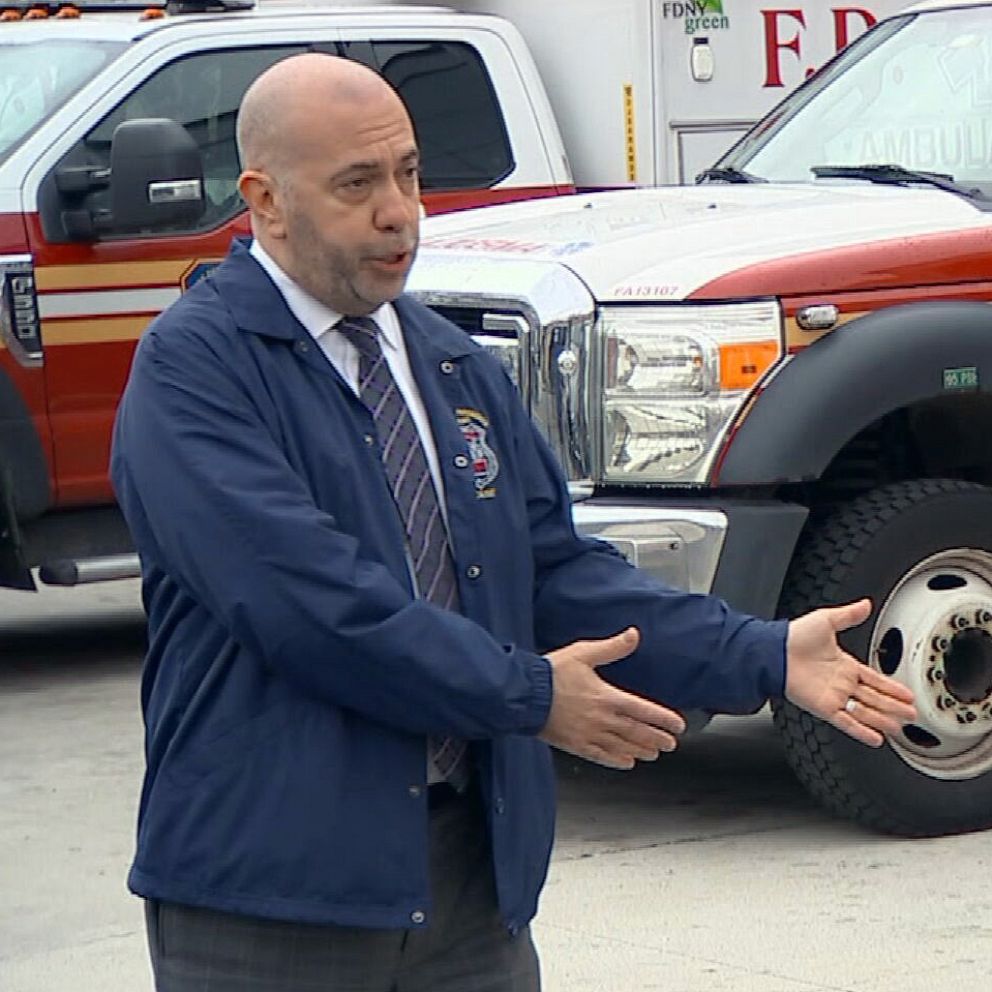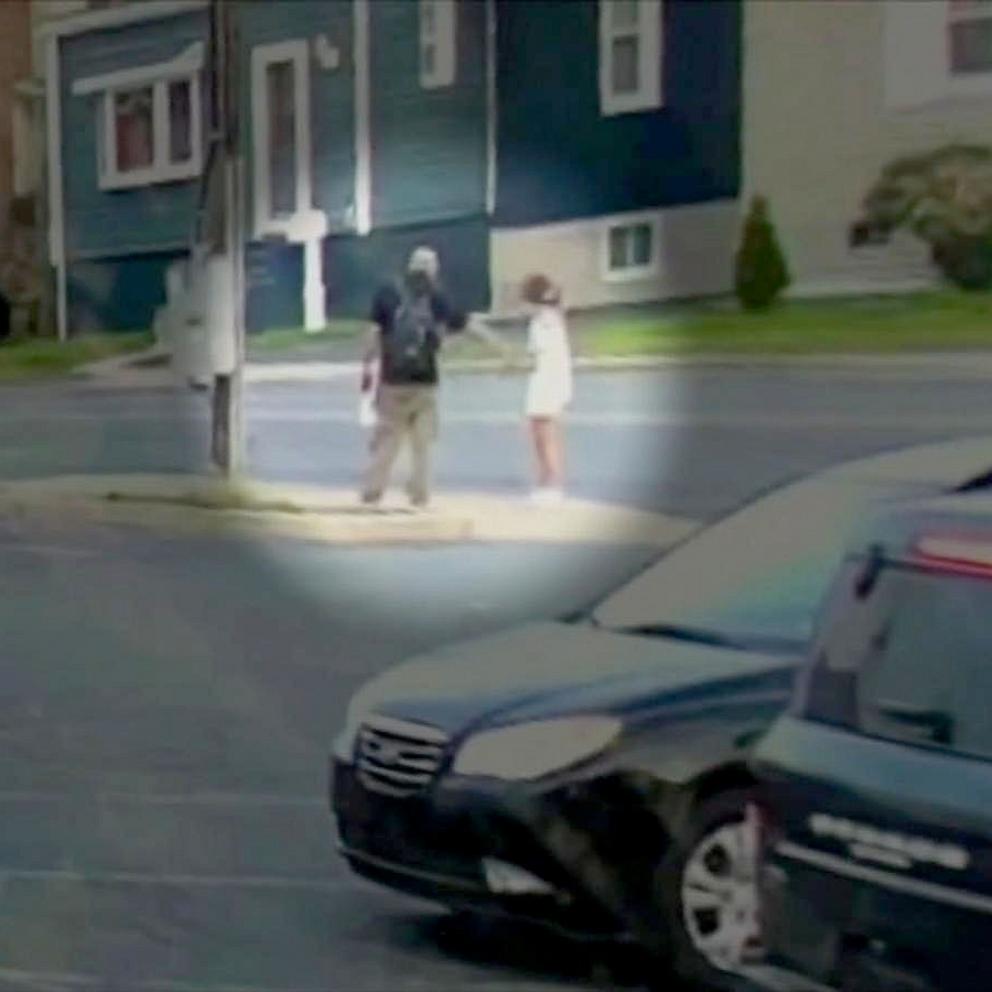EMTs in Boston detail life on the COVID-19 front lines: 'We're drained'
With Boston in the grips of the COVID-19 pandemic, first responders in Boston, working around the clock and fanning out through the city to aid residents, said that everyone appeared to be "at a higher stress level."
EMTs Marianne Muniz and Amalia Borges said that residents were afraid and that EMS workers faced the mental stress of trying to calm patients down and assure them that they were going to be taken care of and going to be safe.
"A lot of people just don't want to get sick," Muniz told ABC News Tuesday. "They see the high number of cases and it definitely causes an internal panic with them."
Tune into ABC at 1 p.m. ET and ABC News Live at 4 p.m. ET every weekday for special coverage of the novel coronavirus with the full ABC News team, including the latest news, context and analysis.
With the city in its seventh week of the pandemic, Jim Hooley, the chief of Boston Emergency Medical Services, told ABC News on Tuesday that his team had seen an "uptick" in calls for suspected COVID-19.
Boston EMS said that its workers had responded to more than 1,200 calls for novel coronavirus.
"We're taking calls a little bit slower, a little bit more deliberate, trying to be careful to protect ourselves, to make sure that we do our self-monitoring," Hooley said.
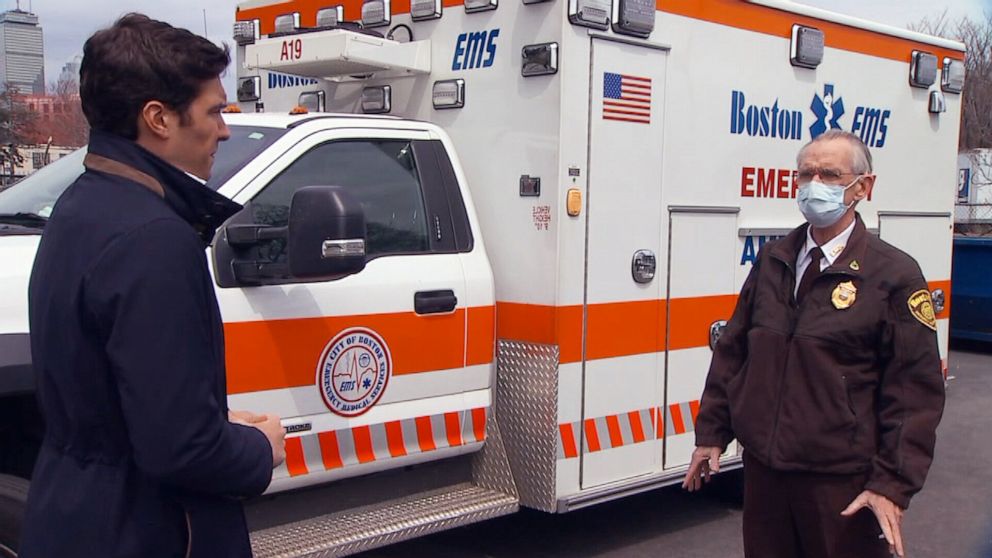
The death toll in Massachusetts, which is experiencing its surge, is nearing 2,000 and the cases topped more than 41,000, according to ABC News affiliate WCVB-TV in Boston.
The women told ABC News on Tuesday they felt like their department was ensuring that EMS workers were prepared and protected. And, Borges said that workers were taking similar protective measures when they got home to their families.
Despite this, she said that "some days I want to kind of scorch my entire uniform before I walk into the house."
Muniz and Borges said that their department had their uniforms cleaned and that even some cleaners had offered their services.
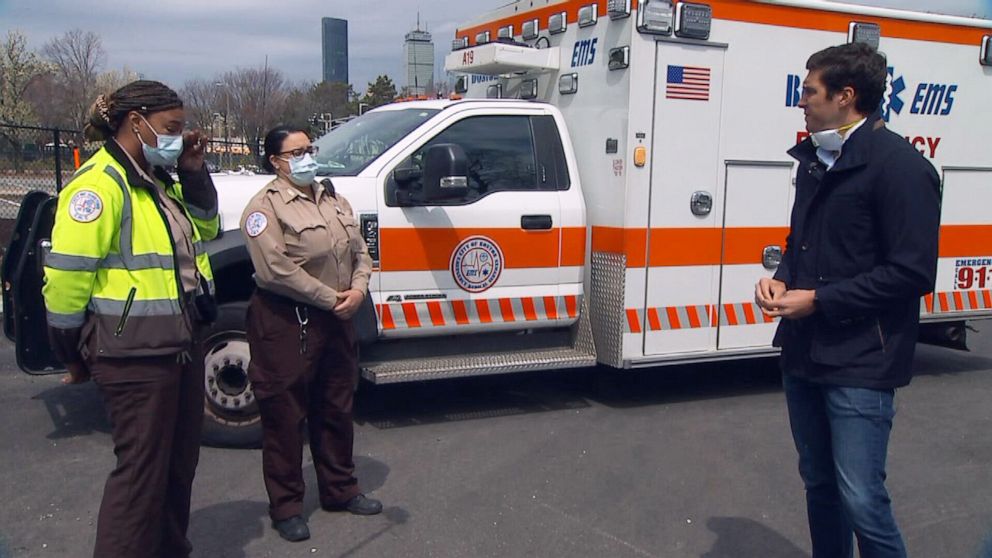
"There's been a big (outpouring) from the community to assist us with food, housing, like I said, uniforms. It's been great. We do appreciate all the love ... that we've received from the community," said Borges, who's been an EMT for almost eight years.
She said that even though she was working during the Boston Marathon bombing, she could not compare anything to the COVID-19 pandemic and its effects on the city.
"We've never had to wear this amount of equipment to go to these calls," Borges said.
"There's no sugar-coating this stuff. We're drained," she said. "We're exhausted."
